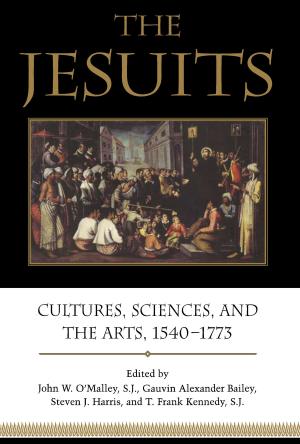Stewards of the Nation's Art
Contested Cultural Authority 1890-1939
Nonfiction, Art & Architecture, Art History, African, General Art, History, British| Author: | Andrea Geddes Poole | ISBN: | 9781442698710 |
| Publisher: | University of Toronto Press, Scholarly Publishing Division | Publication: | February 13, 2010 |
| Imprint: | Language: | English |
| Author: | Andrea Geddes Poole |
| ISBN: | 9781442698710 |
| Publisher: | University of Toronto Press, Scholarly Publishing Division |
| Publication: | February 13, 2010 |
| Imprint: | |
| Language: | English |
Between 1890 and 1939, the groups of men involved in running Britain's four main public art galleries - the National Gallery, the Tate Gallery, the Wallace Collection, and the National Portrait Gallery - were embroiled in continuous power struggles. Stewards of the Nation's Art examines the internal tensions between the galleries' administrative directors, the aristocrats dominating the boards of trustees, and those in the Treasury who controlled the funds as well as board appointments.
Andrea Geddes Poole uses meticulous primary research from all four of these institutions to discuss changing ideas about class, education, and work during this period. The conflicts between aristocratic trustees and administrative directors were not only about the running of the galleries, but also reflected the era's strain between aristocratic amateurs and nouveau riche professionals. Stewards of the Nation's Art is an absorbing study that explores the extent to which the aristocracy was able to hold on to cultural power in an increasingly professional and meritocratic age.
Between 1890 and 1939, the groups of men involved in running Britain's four main public art galleries - the National Gallery, the Tate Gallery, the Wallace Collection, and the National Portrait Gallery - were embroiled in continuous power struggles. Stewards of the Nation's Art examines the internal tensions between the galleries' administrative directors, the aristocrats dominating the boards of trustees, and those in the Treasury who controlled the funds as well as board appointments.
Andrea Geddes Poole uses meticulous primary research from all four of these institutions to discuss changing ideas about class, education, and work during this period. The conflicts between aristocratic trustees and administrative directors were not only about the running of the galleries, but also reflected the era's strain between aristocratic amateurs and nouveau riche professionals. Stewards of the Nation's Art is an absorbing study that explores the extent to which the aristocracy was able to hold on to cultural power in an increasingly professional and meritocratic age.















